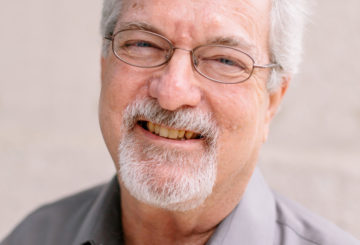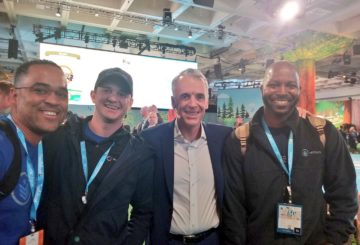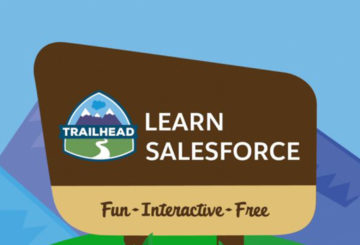As we celebrate 10 years of Merivis, we’re spotlighting the incredible alumni who have shaped our community and gone on to lead impactful careers. In this special “Where Are They Now” feature, we catch up with Roger Miranda to hear how his Merivis journey has influenced his growth and where he is today. Learn more about our 10-year celebration and how we’re honoring our alumni, volunteers, and partners here.

How has your career evolved since graduating from Merivis, and what are you working on now?
It’s hard to believe it’s been over seven years since my first Merivis cohort. When I retired from the Army in 2019, my first civilian role was as a Salesforce recruiter—completely outside of my military experience and both intimidating and exciting. That role pushed me to grow quickly, and while I enjoyed recruiting, I wanted something more technical. I then joined Salesforce Military as a contractor, where I gained technical skills while working on projects that directly benefited the military community. From there, I became a Business Analyst at Capgemini Government Solutions, helping the Department of Defense implement Salesforce solutions. After a year, I joined Salesforce itself as a Senior Solution Engineer in the Telecommunications, Media, and Technology space. In this role, I create engaging demos that show customers the best of Salesforce, much like a movie trailer that makes you want to see the whole film. It’s a role I didn’t even know existed until a fellow Merivis alum told me about it—and it’s become the best job I’ve ever had.
What role did the Merivis community play in your professional growth and confidence in tech?
Merivis has been foundational to my professional growth. I was fortunate to be stationed at Fort Hood, just an hour north of Austin, when I met Nolan Melson, a Merivis Board Member who encouraged me to apply for an upcoming Admin cohort. Within two months, I earned my Admin certification. Within seven months, I was at Dreamforce as part of the Salesforce Military cohort. That momentum was life-changing. Stephanie Herrera, another Merivis leader, encouraged me to take a recruiter role that stretched me in new ways. Over the years, I’ve continued to lean on the Merivis community for mentorship, connections, and inspiration. Now, as someone with “old-timer” status in the community, I focus on giving back, helping coach Data Cloud cohorts and supporting others as they take the same leap I once did. Merivis gave me the confidence to believe I could succeed in tech, and now I feel a responsibility to help others do the same.
How do you stay connected or give back to Merivis as an alum?
I stay involved in several ways: coaching, volunteering, and donating to support future cohorts. Salesforce matches my donations, which doubles the impact, and I encourage others to do the same. Giving to Merivis is one of the highest-ROI investments you can make. Every contribution creates opportunities that ripple outward, touching careers, families, and entire communities. Beyond financial support, I stay connected personally (Kate has a direct line to me), and I always try to show up when Merivis needs alumni to give back. My hope is to continue paying forward the mentorship, training, and encouragement I received when I was starting out.
In your view, what role does Merivis play in shaping the broader Salesforce and tech ecosystem?
Merivis plays an outsized role in shaping the Salesforce and tech ecosystem, particularly for the military community. While the Salesforce Military pledge has faced scrutiny in recent years, Merivis has never wavered in its commitment. When the pandemic forced everything online, Merivis didn’t just adapt—it expanded, offering more cohorts virtually and even launching the first virtual Salesforce military summit. That innovation kept the community connected and created new pathways for people to enter the ecosystem during a time of uncertainty. Ten years in, Merivis remains a steady guide, a North Star if you will, for veterans and military spouses who want to transition into tech. It has not only created career pathways but also influenced how the broader Salesforce ecosystem thinks about military talent and inclusion.
What would you say to the Merivis team, partners, and supporters as we celebrate 10 years of impact?
Thank you will never feel like enough. The vision and commitment has changed the direction of my life and the lives of so many others who have transitioned from military service into meaningful tech careers. These ten years are just the foundation. Every dollar you’ve donated, every hour you’ve volunteered, and every door you’ve opened has planted seeds of opportunity. You may not see the full impact today, but those seeds will grow into a forest of future leaders, innovators, and changemakers. The best part is they’re only getting started.
Original Interview below
Why did you join the military?
I joined the military because I needed money to pay for college. I was fortunate enough to receive a full academic scholarship for high school, but there was no way I could afford college. I took out student loans to cover the first 2 years of college, but then I found the Army ROTC program at Syracuse University. They helped me pay for college and opened the door to a career I had never considered.
What were your role and your responsibilities while you were serving?
For the first 10 years, I served in multiple leadership positions as a Field Artillery officer. These early years were the most formative for me, both as a leader and a person. Those lessons learned leading, training, and caring for Soldiers laid the foundation for the values that would guide me in the military and beyond.
The last 12 years, I served as a Simulations Operations officer, providing virtual training environments training Soldiers. This allowed me to continue serving Soldiers while developing hard skills and capabilities that were more in-demand in the civilian sector.
What are you most proud of?
I am most proud of being able to serve Soldiers and also to be as present as possible for my family. Military service is difficult in many aspects, and we faced challenges that others could only imagine. To lead and train Soldiers while in uniform is both one of the greatest blessings and most difficult burdens I have ever had.
What is the one thing you miss about your time in the military?
I will miss the camaraderie with my fellow Soldiers the most. I heard somewhere that camaraderie is created through shared misery. We certainly faced some difficult situations, but through those, I forged lifelong bonds with my teammates.
Where did you grow up, what kind of family did you come from?
I was born in Newark, NJ. My mother immigrated from Honduras, and my father came from Puerto Rico. My family was poor and we lived in the projects. I was told from a very early age that education was the path to a better life. So my parents pushed me to excel in school because they knew that if I did well enough, I would create opportunities for myself to live a better life.
What challenges or blessing stand out from your history?
Though we were poor, I learned that hard work and education were the keys to a better life. I always knew we were poor, but we never had a poverty mindset. I knew that if I worked hard enough, good things were sure to come. The biggest blessing my parents gave me was that determination to continue working, no matter how hard things get.
How did you find Merivis? What about the program made you join?
I met Nolan Melson at a Veteran networking event at SXSW ‘18. I told him what my job was and that I was retiring from the Army in the following year. I had never heard of Merivis (or even Salesforce) before that day. I Googled Salesforce that night and knew then it was a massive opportunity.
What is your #MerivisMoment?
There are so many, but I think the most surreal moment was when I sat down with Stephanie Herrera and Danny Cohen to ask for career advice. At the end of the meeting, Stephanie told me that she wanted to work with me. THE Stephanie Herrera wanted to work with me!
Another favorite is my very first day in the admin cohort, I showed up wearing a shirt and tie and Kate graciously told me that wearing a tie (especially my red power tie!) was not part of the Austin tech dress code.
What are your career goals now that you are Salesforce certified?
To be the best Salesforce recruiter I can be. Also, to change the negative perception of the recruitment culture. I never thought I would be a recruiter, but I enjoy the opportunity to help people find their next careers in the Salesforce ecosystem. Truthfully, I haven’t done this type of grunt work since I was a Second Lieutenant, but I enjoy the challenge.
What is one skill or value military and/or military spouses have that would benefit a hiring organization?
Dedication to getting things done. We often have a different perspective on what we consider to be difficult than other people.
Sum up your Merivis experience in just one word.
Family.
If you could give one piece of advice to new students going through the Merivis program what would that be?
Make every effort to connect with as many Merivis alumni as possible. They are amazing resources for you personally and professionally.
How has your life and/or career changed as a result of the Merivis program, resources, and community?
I have met so many amazing people that I never would have thought possible. It’s often said that it’s what you know, it’s who you know, that will make you successful.
Of the people you met in the military, who had the biggest impact on you and why?
The leaders who truly took the time to care about me as a Soldier and a person have made the biggest impact on me, They helped to shape my own leadership style.
What’s something that you get out of Merivis that you don’t find anywhere else?
The deep personal and professional bonds that you form with your classmates. Some of the greatest bonds I have built in the Army were in a small unit setting. Having shared experiences with my classmates led to new friendships. Coming back for multiple classes only increases those bonds with new classmates.
A lot of people talk about community when we talk to them about Merivis. What do you like about the Merivis community?
I don’t like the Merivis community, I LOVE the Merivis community! We truly want to help each other succeed.
How would you describe the people you’ve connected to through Merivis?
They are wonderful people who are driven to improve their own lives, and help others do the same. We all have different stories, but we all share similar dreams. It’s like the military where we all come together from different places, but bond together through our shared experiences.
If you could add something to Merivis, what would it be?
More funding to help the program expand. Merivis has fantastic people, from its students, to coaches, to volunteers and board members. But we can only reach as many people as our funding will allow.
Connect with Merivis Graduate, Roger Miranda on Linkedin


